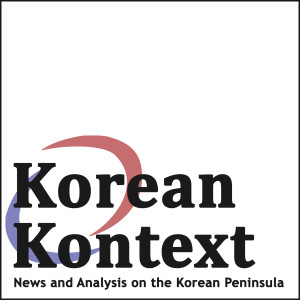
This month, the world was reminded once again that the relationship between the Republic of Korea and Japan is deeply fractious. Japan has imposed restrictions on the export of chemical components for semiconductor chips – accusing South Korea of failing to provide sufficient guarantees that these materials are not being smuggled into North Korea. However, the accusation comes amid a rift between the two countries over the South Korean court’s ruling that select Japanese companies that had forced Koreans into slave labor during the Second World War had to compensate surviving victims.
This crisis builds on top of existing tensions around other historical legacy issues stemming from Japan’s 35-year colonial occupation of Korea – including a disputed islet, ongoing controversy around compensation for sexual slavery by the Japanese military, and how Japan writes about these historical events in its textbooks.
The U.S. government has encouraged the two countries to make amends for decades with limited success. In this environment, who can be the advocate of reconciliation?
Dr. Kristin Vekasi (@ProfVekasi) and Jiwon Nam believe that the private sector has a critical role to play. The discussion builds on their recent research for the Korea Economic Institute, which you can find here: http://www.keia.org/sites/default/files/publications/kei_aps_namvekasi_190624.pdf
Also, keep your eye open for the upcoming publication of Vekasi and Nam's "Boycotting Japan Boycotting Japan: Explaining Divergence in Chinese and South Korean Economic Backlash" in the December 2019 issue of the Journal of Asian Security and International Affairs.
More Episodes
 2020-05-01
2020-05-01
 660
660
 2020-04-17
2020-04-17
 784
784
 2020-03-27
2020-03-27
 882
882
 2020-03-13
2020-03-13
 659
659
 2020-03-06
2020-03-06
 650
650
 2020-02-21
2020-02-21
 692
692
 2020-02-14
2020-02-14
 743
743
 2020-02-07
2020-02-07
 659
659
 2020-01-31
2020-01-31
 704
704
 2020-01-24
2020-01-24
 632
632
 2020-01-17
2020-01-17
 626
626
 2019-12-20
2019-12-20
 855
855
 2019-12-13
2019-12-13
 651
651
 2019-12-06
2019-12-06
 725
725
 2019-11-22
2019-11-22
 707
707
Create your
podcast in
minutes
- Full-featured podcast site
- Unlimited storage and bandwidth
- Comprehensive podcast stats
- Distribute to Apple Podcasts, Spotify, and more
- Make money with your podcast
It is Free
- Privacy Policy
- Cookie Policy
- Terms of Use
- Consent Preferences
- Copyright © 2015-2024 Podbean.com






